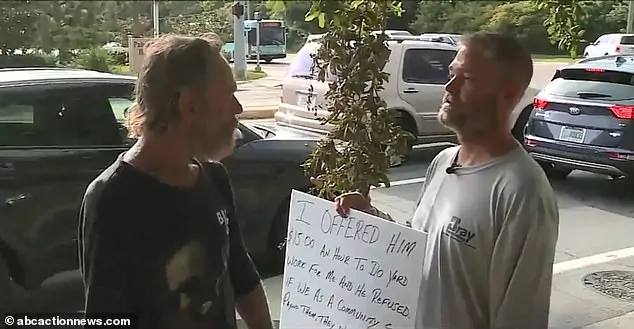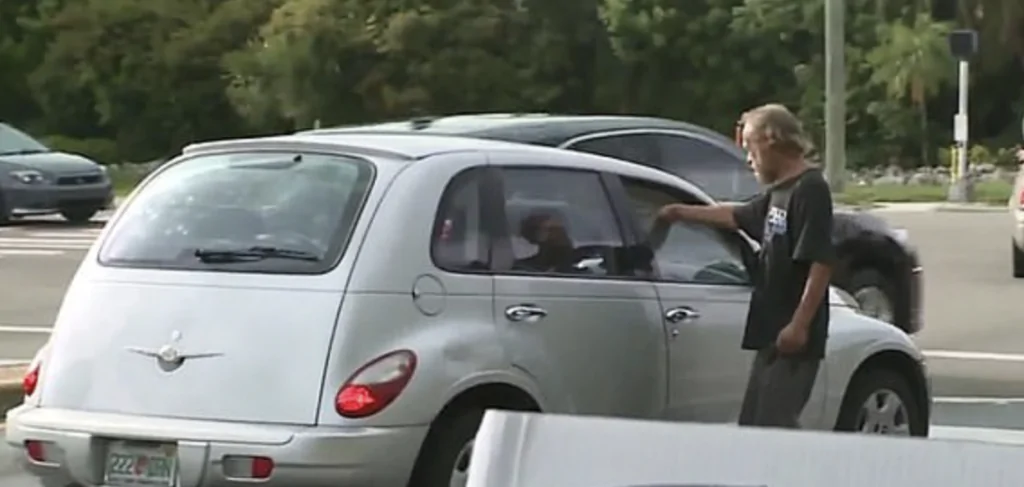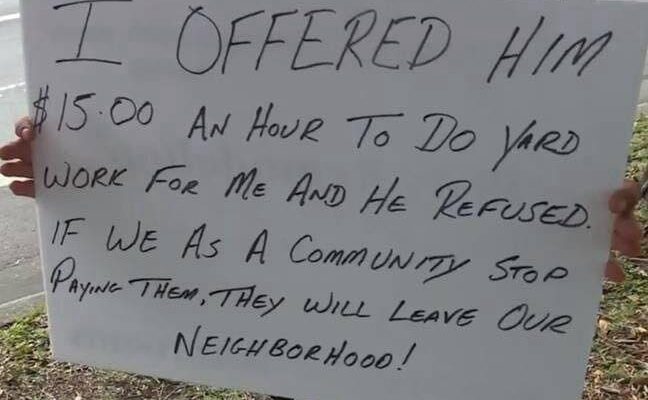Ryan Bray, a kind-hearted individual, always tries to help those in need. One Sunday, on his way home from work, he encountered a panhandler begging for change on the street. This sight was not uncommon in his neighborhood. Feeling compelled to make a bigger difference in the man’s life, Bray approached him with an offer.

Instead of simply giving spare change, Bray proposed giving the man a chance to work for his family business with a wage of $15 per hour. However, to his surprise, the beggar scoffed at the idea, rejecting the proposal outright. He failed to see why he should work when he could make more money by begging.
As Bray considered offering a higher wage, the man’s reaction became hostile. It seemed that Bray’s proposition challenged his complacency and threatened his view of a life where money came without effort. Offended by the beggar’s response, Bray decided to take matters into his own hands.
Returning home, Bray quickly made a sign of his own. He then went back to the same street corner where he publicly condemned the panhandler for his laziness and lack of ambition. Although Bray is generally kind-hearted, he felt compelled to make the beggar understand the consequences of his choices.

The homeless man, who preferred to remain anonymous, spoke to reporters in Florida and claimed that Bray had lied about offering him a job. He simply wanted help to escape his life on the streets. According to him, every penny earned from begging is an opportunity to slowly improve his circumstances.
However, Bray remains resilient in his version of events. Holding his sign that urges motorists not to give money to beggars, he stands firm in his belief that by stopping the community from financially supporting them, these individuals will be compelled to leave the neighborhood.
Bray sees the beggar’s insult as an opportunity to change people’s perspectives and encourage them to stop contributing to the problem. The incident, where the beggar reached into his vehicle asking for money, only reaffirmed Bray’s resolve.



